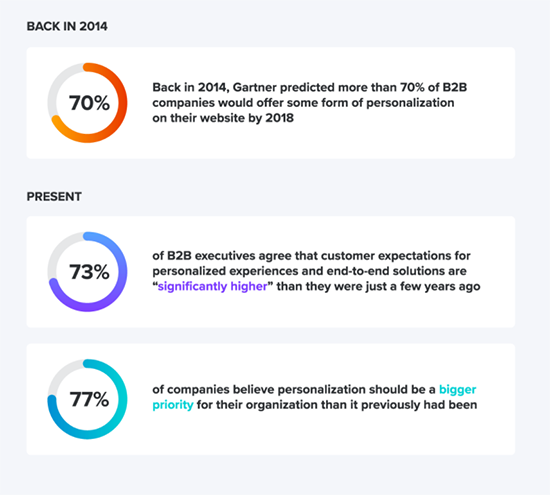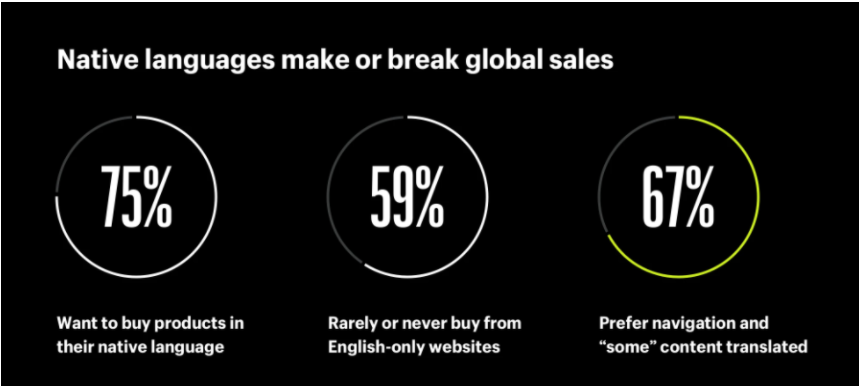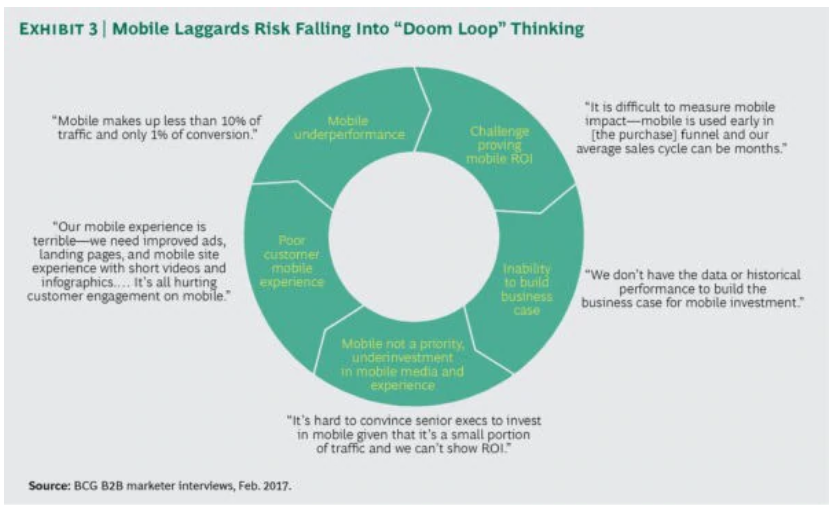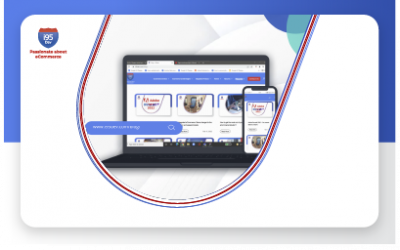September 28, 2020
10 Key Factors To Consider
Before Choosing A B2B eCommerce Platform

Ever since Amazon disrupted the market with its customer-centric approach with platforms like Amazon Prime, B2B buyers expect the same for industrial purchases. Despite the customer sentiment, many B2B eCommerce websites weren’t up to mark until the COVID-19 pandemic eCommerce disruption kicked in. At i95Dev, we strongly believe that B2B web stores need to provide user experiences that are on par with B2C websites. This is backed by the money that goes into B2B eCommerce:
Your B2B eCommerce platform plays an important role in determining the success of your business. This article lists the top 10 key factors that you need to consider before choosing your B2B eCommerce platform. We have included these factors based on our diverse experience as B2B integration service providers. Please read the blog ahead to know more about them.
-
-
- Put Down the Deliverables for your B2B eCommerce Platform
A lot of businesses consider revenue as the ultimate bar for their eCommerce platform. While this isn’t completely false, you should also focus on other deliverables. This includes uptime, system stability and security, APIs, customization capabilities, and scalability are among the important deliverables. 61% of companies are planning to go omnichannel. Thus, setting your deliverables as per your long term business goals and the technical capabilities is essential.
- Put Down the Deliverables for your B2B eCommerce Platform
-
- Design Your B2B Store For Customer Journey
Your B2B eCommerce platform should support your customer journey. This aspect plays a significant role in the success of your business, as visible in the below statistics:- On average, a B2B buyer does 12 searches before making a purchase.
- 74% of B2B buyers conduct online research for at least half of their online work-related purchases.
Understanding the customer journey includes your ideal buyer persona, their finances, devices from which they are likely to make search queries, and content consumption habits. Designing the web store to improvise and enhance this journey should be your ultimate goal.
Dive deeper to gain expert insights for enhancing your B2B customer journey – Watch our on-demand webinar now! Watch Now
- Design Your B2B Store For Customer Journey
-
- Enlist the Marketing Capabilities for your B2B eCommerce Platform
Marketing forms the core of all business strategies. Your eCommerce platform should have built-in provisions for capturing leads and running marketing campaigns. For instance, 73% of the millennials are a part of B2B purchase decisions. Therefore, integrating social media marketing tools, along with email marketing and SEO tools, should be on your priority list. Also, check if the platform is compatible with BI tools as they are on the way to becoming normal for decision making.
- Enlist the Marketing Capabilities for your B2B eCommerce Platform
-
- Lay Down Payment and Currency Considerations
One of the key factors to keep in mind while choosing a B2B web store platform is its ability to carry payment transactions and support the currency. It should cover all major payment gateways, credit and debit cards, bank transfers, and other forms of fintech solutions that your target audience uses. It should also support dynamic pricing, product bundling, discounting schemes, and personalization to improve customer experience. For web stores operating in multiple countries, supporting all concerned denominations and taxation structure is a must.
- Lay Down Payment and Currency Considerations
-
- Check Support for B2B Operations
This aspect covers features like inventory management, warehousing, order management, bookkeeping, and more. A dedicated eCommerce ERP integration solution becomes necessary to run your store smoothly with ERP solutions like SAP, MS Dynamics, and QuickBooks. They help make important decisions regarding pricing, product bundling, creating product categories, and managing core business operations, including inventory, warehousing, order management, and shipping coordination.
- Check Support for B2B Operations
-
- Ensure Proper Integration Capabilities for your B2B Webstore Many platforms don’t offer scalability, which is due to limited customization and integration capabilities. If your long term business goals include scaling up, you should choose solutions that allow you to integrate tools extensively and extend development support. For instance, providing API documentation is a positive signal as it makes integrations easier and reflects their commitment towards enhancing integration and customization capabilities.
-
- End Customer Oriented Facilities
As a B2B platform, it should help provide facilities and features like automated refunds, return merchandise authorization (RMA), multilingual support, online communities, and forums and share educational content regarding your product. We recommend focusing on these features right from the beginning as they extend support to your customers and their customers in businesses like reselling. The following statistics also supports our opinion:
- End Customer Oriented Facilities
-
- Optimize for mobile phones:
Make it a point to go ahead with a mobile-friendly platform because smartphones have sneaked into all age groups. Regardless of the fact that computers play an important role in B2B sales, smartphones impact the customer journey considerably. Here’s how mobile optimization impacts your business model:
- Optimize for mobile phones:
Here are the responses from a survey regarding online buying experiences:
-
- Support For Multi-Channel Selling And Analytics
One of the recent trends in B2B eCommerce is expanding its presence on multiple platforms and going with a multifaceted marketing approach. Having a platform that supports multi-channel or omnichannel selling, process automation, and configuration for BI tools is essential given the complexities of B2B selling models. They ensure your business’s sustainability and help respond better to customer sentiment.
- Support For Multi-Channel Selling And Analytics
-
- Pricing
Last but not least, pricing matters. A lot of businesses ignore the recurring costs in the form of AMCs and support-customization fees. We advise checking all costs incurred beyond installation and setup. You can also contact i95Dev to discuss if the B2B eCommerce platforms that you are considering are economically viable to you in the long term.
- Pricing
-
-
Putting It Together
We have listed down the top ten points to keep in mind while selecting a B2B eCommerce platform for your perusal. Having your cloud-based eCommerce integration provider onboard while selecting can help you make the best choice with more informed decisions. You can also get a free consultation call with i95Dev to get the best solutions.
Recent Blogs
Why Shopify and NetSuite Integration is Crucial for Your eCommerce Success
Why Shopify and NetSuite Integration is Crucial for Your eCommerce Success Author Category Share The digital transformation of commerce is accelerating. According to Gartner, by 2025, a...
Streamlining eCommerce Business with Adobe Commerce (Magento) and NetSuite Integration
Streamlining eCommerce Business with Adobe Commerce (Magento) and NetSuite Integration Author Category Share In the ever-evolving world of commerce, managing eCommerce operations can feel...
B2B e-commerce – How Home Depot is leading the game
B2B eCommerce – How Home Depot is leading the game Author Category Share The home improvement industry has undergone a remarkable transformation, and at the heart of this change is the rise...








